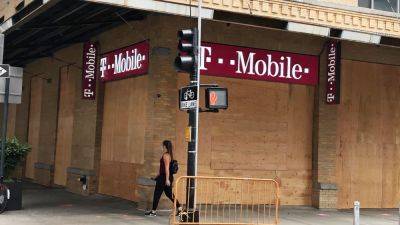‘One guy uses us like a larder’: the British shoplifting crisis – as seen from the tills
C horlton is one of Manchester’s most aspirational suburbs. Its handsome red-brick semis regularly sell for £700,000 or more. It has a worker-owned, vegetarian cooperative that sells locally grown fruit and vegetables, several reiki studios and an artisanal off-licence where one of the bestselling lagers – locally brewed, of course – costs £4 a can.
But Chorlton has a less wholesome side that is best illustrated by its branch of Boots, tucked inside a dismal 70s precinct earmarked for demolition at the end of the year. Want some makeup? You will have to ask for it. Every lipstick, eyeliner, mascara, blusher – everything – is kept in the stockroom, out of public sight and reach. Why? “It keeps getting stolen,” shrugs a shop assistant. “We’ve not had it out for months now.” The thieves had learned when deliveries arrived and would clear them out within minutes.
This small corner of Manchester is no anomaly. The British Retail Consortium (BRC) estimates that there were 8m “theft incidents” in British shops last year, costing £953m. The BRC says shop theft is a “long-term rising trend”, with incidents more than doubling since 2016-17. Meanwhile, reports abound of increasing desperation among customers stealing to feed their children – claims promoted by opposition politicians, but strongly contested by many retailers.
To investigate the scale of the problem, I take a stroll down Chorlton’s main thoroughfare, Barlow Moor Road. The stories I hear en route may seem surprising for a suburb with a knit-your-own-yoghurt reputation: the vintner who keeps a baseball bat behind the counter; the stolen joints of meat hawked around the breakfast tables at the local chain pub; the mini-mart manager who says the police don’t want to deal
Read more on theguardian.com

 theguardian.com
theguardian.com















